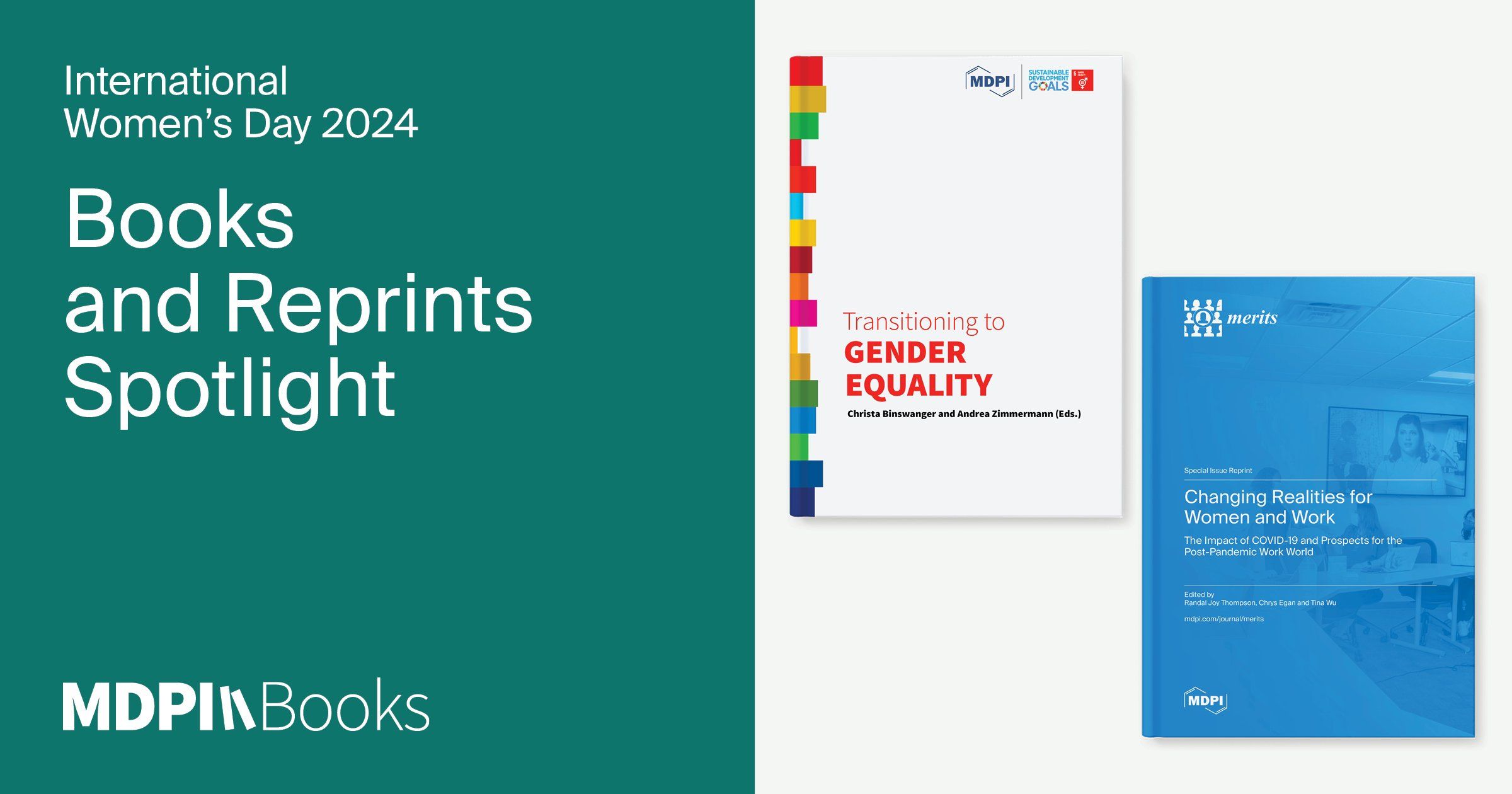
International Women's Day: Books and Reprints Spotlight
International Women’s Day is an opportunity to advocate for gender equality and greater opportunities for women, with the UN Women’s theme for 2024 being ‘Invest in women: Accelerate progress.’ With women generally experiencing lower pay, higher levels of informal employment, and more unpaid care work than men,[i] the focus this year is on the economic inclusion of women and addressing widespread economic disparities.
Transitioning to Gender Equality
Addressing such inequalities is also the focus of our open access edited book, “Transitioning to Gender Equality” (ed. by Christa Binswanger and Andrea Zimmerman). The impetus behind the book is the fifth UN Sustainable Goal, which aims for the elimination of all forms of discrimination against women and girls.
With relevance to this year’s IWD theme, one of the key aims of “Transitioning to Gender Equality” is the interrogation of gendered settings of unpaid care work and the gender pay gap. As outlined by Kristina Lanz, one of the book’s contributors,
‘there are strong indications that gender inequality remains most persistent in the area of unpaid work, with women globally spending about three times more than men on unpaid care and domestic work.’[ii]
To overcome these inequalities, we must ensure that the right laws, policies, resources, and social norms are implemented and observed. The struggle for gender equality is not just a material struggle, but also a struggle over discourse. This is why multidisciplinary books like “Transitioning to Gender Equality”, which give voice to a variety of gendered experiences, are important for addressing the many sides to gender inequality and ensuring that discourse is advanced productively.
Changing Realities for Women and Work: The Impact of COVID-19 and Prospects for the Post-Pandemic Work World
One of the impacts of the COVID-19 pandemic was how it revealed and deepened existing gender inequalities for women in work.
Our reprint “Changing Realties for Women and Work” (ed. by Randal Joy Thompson, Chrys Egan, and Tina Wu) observes how women suffered disproportionate job and income losses compared to men in the wake of the COVID-19 pandemic. Randal Joy Thompson notes that this is due to many factors, such as women’s over-representation in the hardest-hit sectors (i.e., nursing) and their performance of most unpaid care work.[iii]
But what can we do to overcome these inequalities? Focusing on promoting gender-responsive employment policies; investing in care economies such as health, education, and social work; and investment in social protection for women are some of the structural changes we can make to protect women in work. Changes such as these will not only benefit women, but they’ll also help build a more flexible and prosperous economy in the long-term.
Investing in Women
Achieving gender equality and women’s well-being is more important than ever. With the knowledge that threats such as pandemics and climate change can impact job security and exacerbate existing gender inequalities, it’s crucial that changes are made to strengthen the safety net for women in work. But we shouldn’t stop there. It’s necessary to not only secure women’s jobs, but to improve the economic system so that it actively fosters career progression and opportunities for women.
Download and read “Transitioning to Gender Equality” and “Changing Realities for Women and Work” to learn more about gender equality and what is being done to help realise it.
To learn more about the difference between our open access books and reprints, read our short informative piece.
[i] https://lordslibrary.parliament.uk/international-womens-day-2024-economic-inclusion-of-women/
[ii] https://www.mdpi.com/books/edition/1296-transitioning-to-gender-equality
[iii] https://www.mdpi.com/books/reprint/8263-changing-realities-for-women-and-work-the-impact-of-covid-19-and-prospects-for-the-post-pandemic